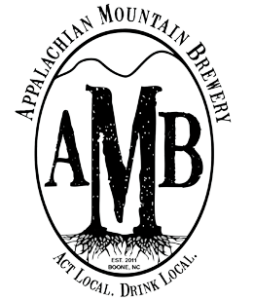Look out, SAM and BREW.
After executing a reverse merger, little Boone, N.C.-based Appalachian Mountain Brewery (now traded under HOPS) has become the fourth publicly-traded craft beer company in the U.S., joining the aforementioned Boston Beer Co. and Craft Brew Alliance, as well as Mendocino Brewing (OTC:MENB) on the open markets.
Last month, the ten month-old craft brewery and its shareholders acquired the defunct penny stock North Carolina Natural Energy Inc., with the equivalent of $3.5 million in shares.
The brewery today announced it has completed its name change from North Carolina Natural Energy, Inc. (OTC:NCNE) and will begin trading on the Over-the-Counter Bulletin Board under its new, appropriate ticker symbol.
AMB founder and CEO Sean Spiegelman told Brewbound that, despite being less than a year old (AMB launched in February, 2013), going public was the best long-term decision for the company.
“In the future, I would like to see the company be more horizontally integrated into the industry,” he said. “That will include our own distribution but I’d also like to get involved in distilling, ciders, alternative beverages and restaurants.”
The move will also allow AMB to attract private investors and, hopefully, raise capital for additional production capacity and packaging lines, Spiegelman said. He hopes to secure between $3 and $5 million through a combination of private investment, proceeds from sales of its public shares and, potentially, bank debt.
“Not knowing what will happen with our fundraising efforts, our current 2014 goal is to produce labels, for every product that we make, and to package them into 22 oz. bottles,” he said.
AMB has experimented with over 30 different recipes and regularly pours 10 different beers in its taproom. Spiegelman said that the company’s current space, which is equipped with a 10-barrel brewhouse, is capable of producing upwards of 3,000 barrels annually. With additional investment, Spiegelman said he would look to install a 30-barrel brewhouse, which could grow production significantly at a second location and allow the company to begin outside distribution of its beers.
“We have a few different craft beverage distributors that have approached us,” he said. “ We plan to work with smaller distributors initially and will look satisfy what we can in North Carolina before sending our beer to other places.”
As Spiegelman looks to grow the AMB brand, he has an ace up his sleeve: Mike Pruitt, one of AMB’s investors. Pruitt also currently serves as the president of Chanticleer Holdings, which also has a minority stake in Hooters, Inc.
Pruitt’s story dates back to 2006 when he made a $5 million dollar bet on the popular restaurant chain known for its spicy wings and scantily-clad servers. Having befriended Hooters then-Chairman Robert Brooks, Pruitt negotiated a deal that would give Chanticleer Holdings the right of first refusal to any future change in ownership. When Brooks died, New York City-based Wellspring Capital Management made a move to acquire the Hooters business and Pruitt exercised his rights to contest the proposed sale. Having won a legal contest, Pruitt then brought together a group of private equity investors to match Wellspring’s offer.
Spiegelman said he hopes to lean on Pruitt not only for his business insight but also his access to 412 Hooters restaurants in 28 countries.
“Mike and I have developed a very candid and enjoyable business relationship,” Spiegelman said. “I have a tremendous amount of respect for what he has done as a businessman and I think the potential is there for AMB to be carried across all of the Hooters Restaurants in the future.”
Access to those accounts is likely many years away, however. AMB produced less than 1,000 barrels in 2013 and approximately 90-percent of production was sold in the brewery taproom, Spiegelman said, adding that AMB had approximately $500,000 in sales during its first 10 months.

